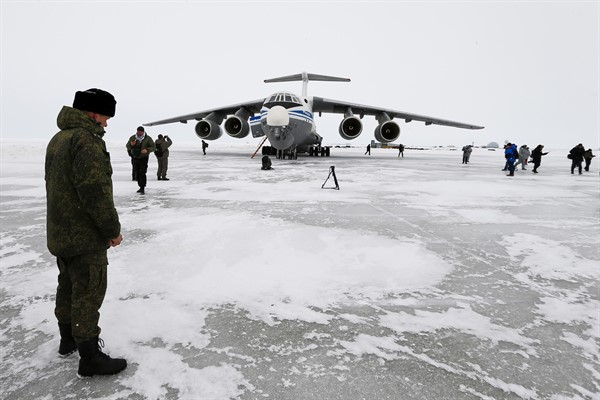Since Feb. 24, the eyes of the world have been fixed on Eastern Europe. But the events unfolding in and around Ukraine portend great changes for another region: the Arctic.
Commonly viewed as a “territory of dialogue,” the Arctic has over the past three decades won a reputation as a “zone of peace” marked by exceptionally calm and collaborative security dynamics. Indeed, this is what former Soviet President Mikhail Gorbachev envisioned back in October 1987, when he launched a series of policy initiatives aimed at lowering the level of military confrontation in the Arctic by facilitating cooperation among the eight Arctic states: Canada, Denmark, Finland, Iceland, Norway, Sweden, Russia and the United States.
In time, that noble objective gave birth to a new strategic environment in the region—an “Arctic exceptionalism” that has endured in part because the Arctic Eight share common regional interests, and because their interactions are supported by a range of robust institutional frameworks, from the Arctic Council to the Barents Euro-Arctic Council.

